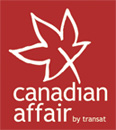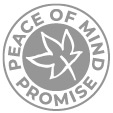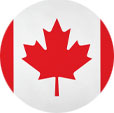Do you know your toque from your Timmies?
We can well understand the appeal of going on escorted holidays to Canada. You can see all the incredible sights while putting your feet up and letting someone else drive. Plus, you get an expert host to fill you in on the history and hotspots. But, if you’re being guided by a local, you may well hear these common slang terms during your holiday.
Canadian language is unique. There are lots of English Canadian-isms used by people from across the country, while in some parts of Canada the main language is French. “But why do Canadians speak French?” I hear you ask. Most French speakers live in the province of Quebec, which was a former French colony, and as such, French is the mother tongue for over 7 million Canadians.
If you’d like to learn more about Canadian language, then test your knowledge by taking this short quiz to see how many Canadian slang words you get correct. You can then read on to find out more about the language in Canada.
Canadian slang terms
Toque

One of the most widespread Canadian slang words is toque, which people use to refer to winter hats. If you’re heading on a Canada holiday during the winter months, it might be worth remembering this word.
J.J. McCullough, a Canadian who runs The Canada Guide, says, “There has been some French influence on Canadian words, but it’s been rather minor, which reflects the fact that outside of Quebec and Ottawa, French and English-speaking Canadians don’t tend to interact much. Using the French word “toque” for “beanie,” is quite mainstream.”
Timmies and Double Double

For anyone that didn’t know, Tim Hortons – a national café and fast food restaurant – is a Canadian icon that can be found virtually anywhere you go in Canada. It’s as ubiquitous as Pret or Starbucks.
Because of the outlet’s huge popularity, there are many slang words that are associated with it. Overhear someone ordering their morning coffee and doughnuts and you’re bound to hear the phrases “timmies” and “double double”.
Kim Logan, a Canadian blogger who runs the site Tales of a Ranting Ginger, explains what these two slang words mean.
“A Timmies is a coffee from Tim Hortons, while a ‘double double’ refers to the way you take your coffee – with double cream and double sugar.”
Eh
Sometimes the stereotypes are true! Canadians say their famous phrase, “Eh” all the time and Kim Logan says it is used by people to confirm they are understanding or are following what you are saying.
Canadians commonly end sentences with “eh” as well. This is when a speaker is asking the listener a question, but is not necessarily expecting a response. Below are some examples:
-
Toronto is a really nice city, eh
-
We went on the Rocky Mountaineer and saw some amazing scenery, eh
-
What do you think? Not bad, eh?
If you’ve heard people doing this in the UK sometimes too, you may be onto something…CBC News reported that the two-letter phrase predates Canadian Confederation and may have travelled across the pond from Ireland.
According to the CBC News article, the usage of ‘eh’ is most commonly used in Northern Ontario, but British Columbia and Alberta are also provinces where the term is used a lot.
A Loonie

You may be asking yourself why a Canadian dollar is called a loonie. It is quite simple: there’s a picture of a loon on one side of the $1 coin.
A loon is a bird that looks similar to a duck and is very common in the country. The birds are vocal and can often be heard making hoots and wails.
Another slang term that’s associated with money is the toonie, a nickname given to $2 coins. This is a combination of the words “two” and “loonie”.
A chesterfield
Although not a commonly used slang term, if you do hear someone say “a chesterfield” on your travels it means a couch or sofa, according to J.J. McCullough.
“In practice, I think a lot of the so-called “Canadianisms” we read about tend to be quite dated or regional. A good example is calling a couch a “chesterfield.” My father and grandmother, who are both from Ontario, used that term a lot when I was growing up, but you never hear a young person out here in Vancouver say that. I think language is something that evolves naturally, and as Canadians have become aware — particularly in the age of the internet — that certain “Canadian” terms are not commonly-used or mainstream in the larger North American context, they’ve died out since they only impede clear communication.”
This is another phrase which may have travelled across the pond. In the UK, a Chesterfield is a specific type of button-back sofa traditionally made of leather. It is believed that Lord Phillip Stanhope, the 4th Earl of Chesterfield (1694-1773), commissioned the first leather chesterfield settee.
Dep

In Quebec, a common slang term is dep which is short for dépanneur and refers to a convenience store. This comes from the French word dépanner which means “to help out of difficulty”. Dépanneurs used to be the only non-state stores in the province to sell beer and other alcoholic beverages, which makes the name quite fitting on a Friday night!
Oil Town
Edmonton is known as Oil Town as it is the service and supply centre for the oil industry in Western Canada.
Oil production has long been the dominant factor in the city’s economy and its industrial base includes oil refining and the production of petrochemicals, plastics and fertilisers.
Other slang terms
Give’er – To give it all you got when all else fails
Canuck – Canadian
Clicks – kilometres
Keener – a suck up/somebody who tends to pretend friendship for their benefit
To be on pogey – to be on welfare
Newfie – A person from Newfoundland, an eastern province
The French influence

French language has had a significant influence on Canadian English. Both languages have co-existed in Canada from roughly the 1770s, Canadian French being nearly a century ‘older’ than Canadian English.
The French influence is particularly evident in Montreal. Most expressions and certain grammatical features adopted from Canadian French have a considerable role in Canadian English there.
A spokesperson for Visit Montreal shared some examples:
– Expressions such as anglophone and francophone (written with lower case letters at the beginning) are based on the French model, which does not capitalise nationalities and languages.
– Quebec English in particular is rich with typically French words (autoroute, dep, chalet, stage)
– The word ‘Canada’ positioned after the adjective in certain proper names (Air Canada, Parks Canada, Environment Canada)
– Other Canadian English usages inspired by French include: “give a conference” (instead of “give a lecture”, which comes from French donner une conférence); “take a decision” (instead of “make a decision”, from French prendre la décision), or an infinitive after the verb “accept”, for example, accept to meet him instead of accept a meeting.
In an academic paper by Masaryk University in the Czech Republic it says, “The influence of Canadian French on Canadian English is undisputed. As has been demonstrated, the original French vocabulary has penetrated all spheres of Canadian life, from official expressions to everyday words. Syntactical phenomena stemming from French have equally become a non-negligible part of Canadian English. Nothing like that has happened in other varieties of English. Hence it can be concluded that the French factor is one of the features that make Canadian English unique.”
Kim Logan from Tales of a Ranting Ginger, says, “Canadian words seem to be a mixture of our British roots and French Canadian. I find French influences the spelling of certain words like theatre, and the pronunciation (many will notice some letters will have accents).”
Image Credit: Michel Curi, Open Grid Scheduler / Grid Engine (flickr)







